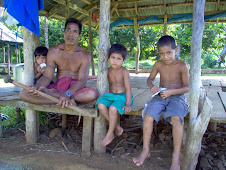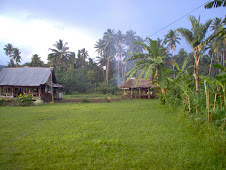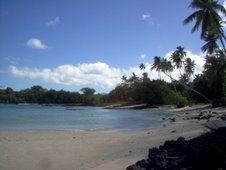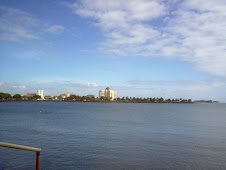Life is perilous sometimes in the middle of the South Pacific. Within the last month there have been three accidents that took the lives of Samoans who lived in neighboring villages.
The Yellow Bus: The first was a bus accident on June 21st when three people were killed. The bus was going too fast down a hill on a narrow road. It’s amazing that most on the bus had only relatively minor injuries. One of those killed was a 13-year old boy who was one of the students of a Peace Corps teacher in Tafatafa three villages down the road from me.
There was an optional meeting at the Peace Corps office that day and I decided not to go. If I had gone, I would have been on that bus on my way home since I wouldn’t have been able to catch my regular bus after the meeting. I hesitate to tell you about this, as I’m afraid you might worry about me, but as you can see Someone was looking out for me.
When I first came to Poutasi, my Samoan family told me not to ride the yellow bus – that it wasn’t safe. They said that the owner of the yellow buses (there are three) had given the official at the government ministry a red pickup truck and then he just signed off on the inspection paperwork. The PC from Tafatafa said she had seen one of the drivers drinking beer on the bus. So I have only ridden on that bus three or four times when there was no other choice because it’s the last bus of the day.
As I’ve told you in the past, I usually take the red bus driven by my next door neighbor even though it goes the long way around the end of the island to get to Apia, making a two-hour ride each way. There is one other bus, a green one, which makes several trips during the day that I ride sometimes too, since my neighbor just makes one round trip leaving at 6:00 am and returning at 6:30 pm. The yellow bus and the green bus took the route directly over the mountain on the Tiavi Cross Island Road which only takes about an hour. This week on Monday because of the accident the government minister banned buses on the Cross Island Road. (Yes, he can do that without input or public hearing of any sort.) So now I have no option other than four hours on a bus when I go to town (unless I can catch a ride with someone from the village). It’s typical of Samoa that they would make a quick “fix” like this, and of course the two other yellow buses are still on the road.
The Navigator Islands: On June 28th two fishermen from the next village over were lost at sea outside the reef of the small bay of our village. There were three of them in a small motorized fishing boat early in the morning. It was still dark and they miscalculated and drove the boat onto the reef where it capsized and sank. Initially each had something to hold onto in the water - ice chests, etc. They were together in the water for awhile and then got separated. One young man swam to shore to Poutasi and the others didn’t make it.
The islands of Samoa were christened The Navigator Islands by French explorer Bougainville in 1768. While the name didn’t stick, since they already had a name (ah, the arrogance of European “civilized” explorers), it was apt since the Samoans were indisputably some of the world’s best sailors of the open ocean centuries before those civilized explorers even ventured out of sight of the shoreline.
Someday I’ll write more about the outrigger canoes in my village and the revival throughout the Pacific of the early methods of navigating by the stars, the clouds, and the sea. But for the moment, I’ll just mention that an early Polynesian navigator could stand with feet firmly planted on the deck of his double-hulled sailing canoe and sense the direction and movement of swells through his feet right up through his body. The complex patterns produced by swells of the ocean that are refracted and reflected among the islands were understood by these men. This knowledge was especially important when canoes neared the vicinity of an island on a dark, moonless night, allowing the navigator to stay clear of the surrounding reefs until daylight.
In our modern era, accidents happen instead.
Rugby, or as they say in Samoan, Lakapi: The end of the following week a young man from another village nearby broke his neck and died playing rugby. He was 17. As you may know, rugby is a hugely popular sport here and every village has a local team.
Samoans are serious about rugby. Manu Samoa, the national professional team, is ranked in the top 20 in the world, which is amazing considering that they come from a speck of land in the middle of the Pacific with only 180,000 people.
************************************************
In Samoa it seems that everyone knows or is related to someone who is related to your family so this has been a difficult time for many local people.
************************************************
On a totally different subject . . .
At the village council meeting on Monday last week a man was banished from the village. That means that he had to pack up his belongings and leave the village forever and go live with family in another village. He’s a man whom I know well (he was on the Learning Centre Committee and a deacon of the church). He’s been having an affair with a married woman. Her family will have to pay a fine to the council of chiefs - $1,000WST and a cow (which is worth about $1,000WST). The cow will be butchered and shared amongst the chiefs. This is a significant fine for a family who makes their living as subsistence farmers and fishermen. (In US dollars this is about $835 total, including the cow.)
I knew about banishment, but I thought it usually only applied to serious crimes or was employed when other forms of customary penalty, such as fines and ostracism from village affairs had failed. Maybe there’s some history there that I don’t know about.
Not only are there no secrets in a Samoan village, can you imagine your affairs (pun intended) being discussed publicly by the entire village?
************************************************
So life here is kind of like living in a soap opera sometimes – there are lots of happy, peaceful times in the lives of the people, but the unexpected is always just around the corner.
Thursday, July 17, 2008
Subscribe to:
Comments (Atom)
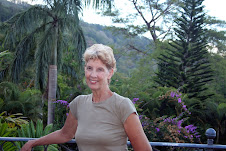
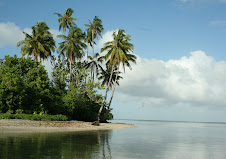


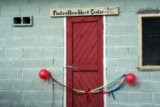
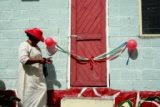
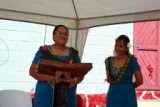

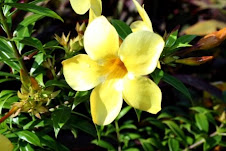
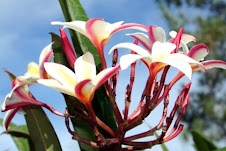


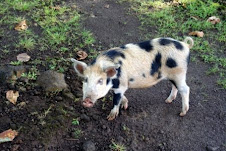

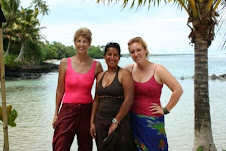

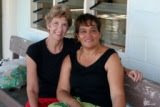

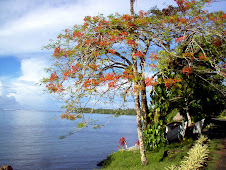
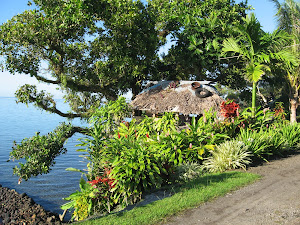
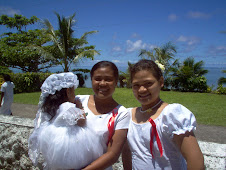
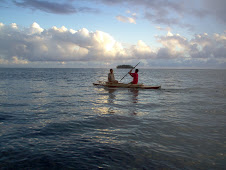

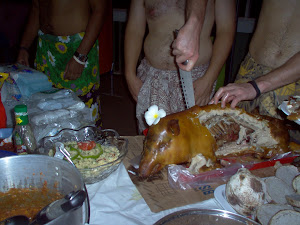
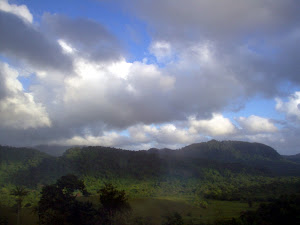
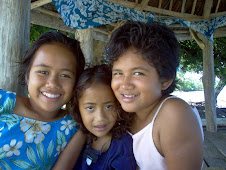.jpg)
